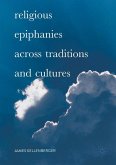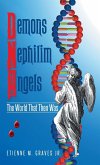This book addresses the most suggestive themes of transhumanism and critical posthumanism by placing them in dialogue with classic problems of metaphysics, and with some great thinkers of the past (Bruno, Spinoza, and above all Leibniz). The main purpose of this comparison is to invite transhumanists and critical posthumanists to consider a highly complex problematic tradition rooted in the history of philosophy. This study also makes use of examples drawn from the history of mythology, angelology, and mysticism. At the same time, the book promotes dialogue between scholars of classical metaphysics and philosophy of religion, and the potential metaphysical/spiritual theories developed independently by transhumanist and posthumanist thinkers within an anti-dualist and naturalistic philosophical framework.
The goal is to 'enhance' contemporary transhumanism and posthumanism by promoting the need to safeguard intelligence as a principle, without falling into the trap of aviolent and egotistic metaphysics.
The goal is to 'enhance' contemporary transhumanism and posthumanism by promoting the need to safeguard intelligence as a principle, without falling into the trap of aviolent and egotistic metaphysics.








